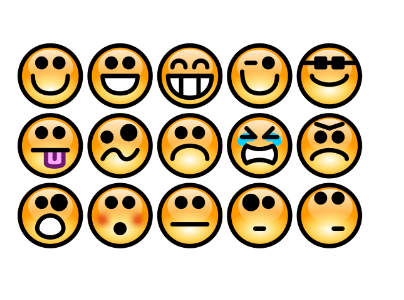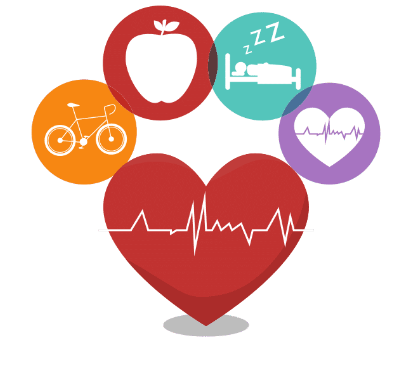Check in on your Mental Health!
This week 15th-21st of May is mental health awareness week…so why not take some time to really check in on how you are feeling. Here are 5 questions to ask yourself.

1. How Am I Feeling Today?
This one sounds obvious, but how often do you ask yourself how you are feeling — and then pause to genuinely consider your response?
Checking in on your mental health starts with assessing how you are feeling. Do you notice feeling stress, anxiety, worry, sadness, or other challenging emotions?
Use a scale of 1 to 10, and take note of how you feel at the same time each day. You can do this physically in a notebook, or you can simply keep a mental track of your numbers. If your number goes down, that’s a sure sign you need to pay attention to your mental health.
Additionally, it’s important to notice how you’re feeling physically, too. Some ways mental health concerns can show up physically include:
Stress: Headaches, body pains, skin rashes, or worsening of chronic health problems
Anxiety: Headaches, stomach aches, muscle tension, or frequent urination
Depression: Appetite changes, weight loss or gain, loss of energy, and unexplained aches and pains

2. What’s Been Worrying Me Lately?
Next, take a moment to think specifically about what’s been weighing on you recently. Is it work, family, friends, money, or something else? Maybe it’s one, two, or even nine different things that are worrying you. Whatever it is, it’s important to notice how these potential triggers make you feel — and to do your best to address them.
For instance, if you’re worried about world affairs, take breaks from the news and social media at least a few times a day . Also, try journaling, meditation, or taking a warm bath.
If it’s work on your mind, try tracking your stressors in a journal to see what situations stress you out the most. Then, try to develop healthy responses, like taking a 10-minute break or establishing clear boundaries.
If you don’t know what’s causing negative feelings, it will be tough to address them. Take the time to identify your stressors, and then you can work on managing them.

3. Am I Providing My Body With Its Basic Needs?
Sometimes, we get so busy that we forget to focus on the basics — food, exercise, and sleep. These are simple but critical ways to ensure you’re staying healthy both mentally and physically.
Make sure you:
- Eat nutrient-rich meals full of fruits and veggies, and drink enough water .
- Get moving at least once a day, whether you take a brisk walk or do an online workout video.
- Sleep between 7 and 9 hours each night.
Additionally, if you find that you’re not caring for your body, that can be a sign of a mental health concern. For instance, if you’re having trouble sleeping, that could be a sign of depression . Or, if you’re not feeling hungry, that could be a sign of stress .
Your mental and physical health are deeply intertwined — and paying attention to both is key to your overall wellness.

4. What Am I Doing to Bring Myself Joy?
With everything on your to-do list, it can be easy to push leisure activities down to the bottom. But taking time to be happy is so important to your mental health.
Ask yourself what you’re doing to bring yourself joy. If you can’t think of anything, that needs to change.
Some ways to incorporate joy into your life include:
- Keep a gratitude journal and write three things you are grateful for each day.
- Plan a mini getaway, like a camping trip or staycation near your home.
- Get creative with a new recipe, painting, or a new crafting project.
- Watch a funny movie or television show.
- Visit with loved ones who make you smile.
- Spend time with your dog, cat, or another loving pet.
- Sit outside in the sun for 15 minutes.

5. Who Do I Have In My Corner?
Having a strong support system is essential to your mental health. Ask yourself who you consider trustworthy and loving that you can turn to when you need it most.
Whether it’s a partner, sibling, healthcare provider, faith leader, therapist, social worker or other trusted individual, make sure you have at least one person in your life who:
- Gives good advice when you ask for it
- Is respectful and trustworthy
- Allows you space to make decisions, grow, and even make mistakes
- Actually listens to you
- Has your best interests at heart
Support groups are a great resource to find a group of people who can relate to your challenges and provide support. At Chrysalis we run monthly support groups in all our offices bases as a relationship based service we understand the importance of connection. So take time to connect with others.
As a foster carer for Chrysalis you have a dedicated Therapeutic Fostering Social Worker that you will meet monthly for supervision this is just one part of the holistic package of support offered to Chrysalis foster carers to find out more: https://chrysalisconsortium.co.uk/the-chrysalis-approach/
Make Checking in on Your Mental Health Routine
It takes time to form a habit. At first, purposefully asking yourself questions about your mental health might feel strange. But over time, it will become a natural part of your routine.
More resources:
https://www.mentalhealth.org.uk/our-work/public-engagement/mental-health-awareness-week
https://www.mind.org.uk/get-involved/mental-health-awareness-week/



